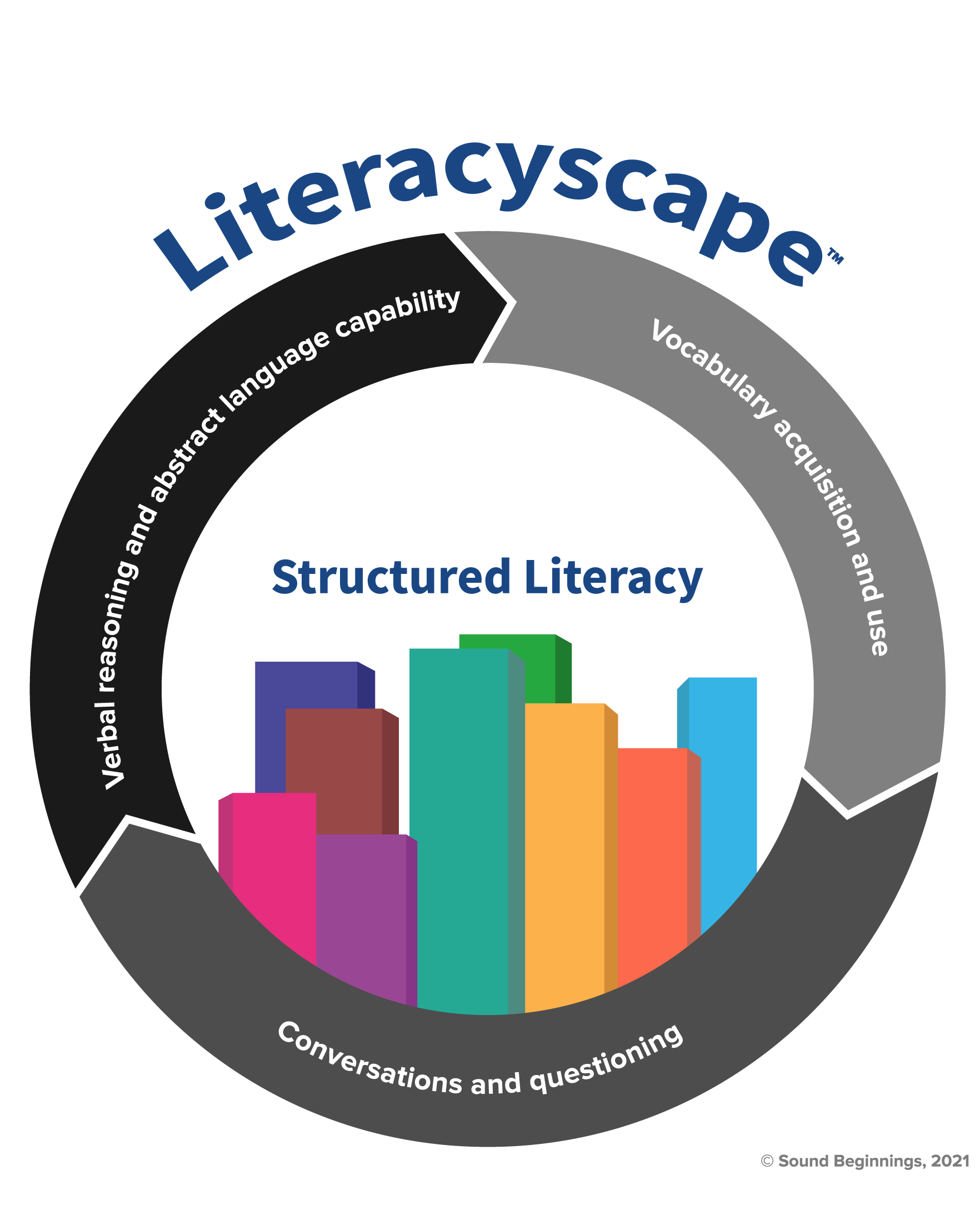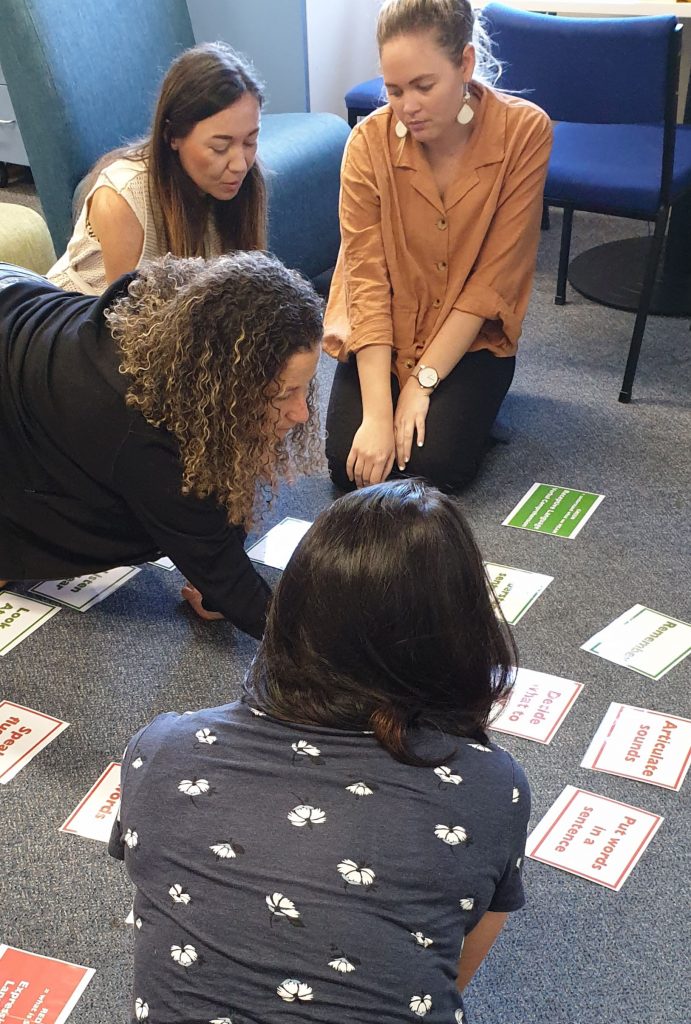
not a member yet?
Sign up to our newsletter and receive a free resource every month.
Oral language and communication are key to unlocking success in literacy, learning and life. Oral language provides the foundation for the development of literacy skills. This is because word knowledge underpins speaking, listening, reading, and writing. Language is at the heart of learning.
Sound Beginnings Literacyscape™
captures the key components that position oral language and communication around structured literacy for successful learning.To be effective communicators we need to be able to use speech and language and know how to listen actively. The processes involved in communication are complex and interlinked and the same in every language.
Sound Beginnings Literacyscape™
captures the key components that position oral language and communication around structured literacy for successful learning.To be effective communicators we need to be able to use speech and language and know how to listen actively. The processes involved in communication are complex and interlinked and the same in every language.

is a framework depicting the key elements of effective literacy teaching. The properties of oral language and communication encircle the elements of structured literacy instruction depicting how key oral language and communication are to a sound beginning in literacy and learning.
At Sound Beginnings, we believe that a sound beginning to literacy and learning is fundamental to success. Oral language and communication matter; they are the foundation of literacy.
A solid foundation of oral language and literacy skills supports children become confident readers and effective communicators with an overall sense of well-being.
At Sound Beginnings, we believe that a sound beginning to literacy and learning is fundamental
to success. Oral language and communication matter; they are the foundation of literacy.
A solid foundation of oral language and literacy skills supports children become confident readers and effective communicators with an overall sense of well-being.
We all learn about reading and writing. We all speak. We teach reading and writing – and have had great training, and the confidence to teach these. Oral language – we think we teach it, and we teach the best we can – news stories, talking circles, peer-share, and rhymes – but when have we ever learned about how to teach oral language, to teach hearing and speaking? Never. We teach speech making but not speaking. It is the most under-taught area of PD and in the classroom.
Finally, we have professional learning that helps us to unlock the mystery of oral language. Without the foundation of excellent oral language, the rest has the potential to really go wrong. Get the foundations right. Slow down and do this first.

We all learn about reading and writing. We all speak. We teach reading and writing – and have had great training, and the confidence to teach these. Oral language – we think we teach it, and we teach the best we can – news stories, talking circles, peer-share, and rhymes – but when have we ever learned about how to teach oral language, to teach hearing and speaking? Never. We teach speech making but not speaking. It is the most under-taught area of PD and in the classroom.
Finally, we have professional learning that helps us to unlock the mystery of oral language. Without the foundation of excellent oral language, the rest has the potential to really go wrong. Get the foundations right. Slow down and do this first.
Sign up to our newsletter and receive a free resource every month.